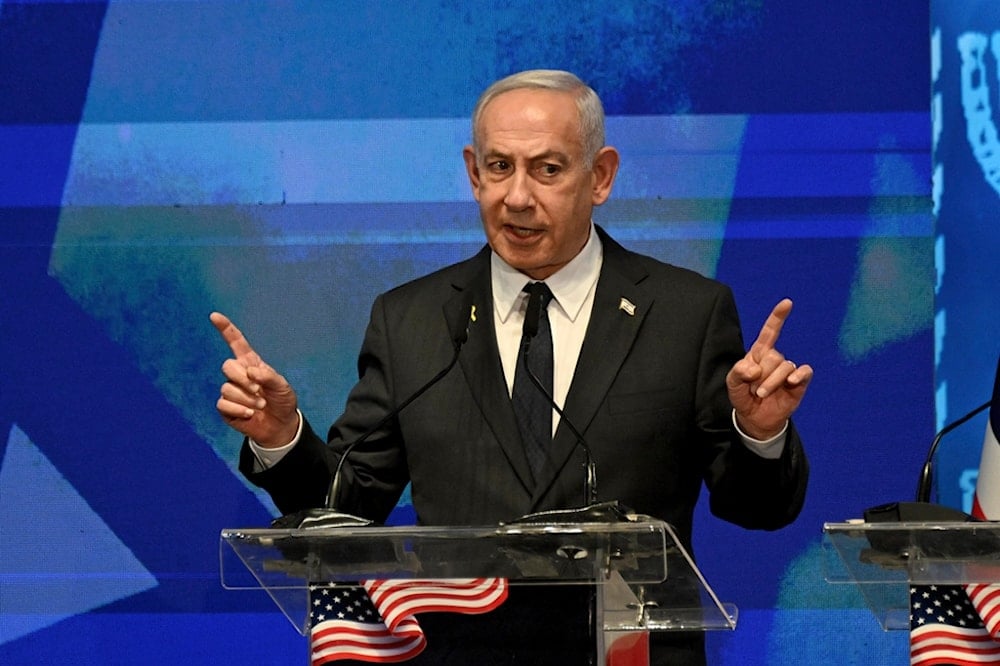Netanyahu rejects Palestinian state as recognition expands
Israeli Prime Minister Benjamin Netanyahu rejected Palestinian statehood as more countries recognize Palestine, pledging settlement expansion despite mounting international pressure.
-

Israeli Prime Minister Benjamin Netanyahu speaks at the opening event of the bipartisan delegation of American legislators to Israel in occupied al-Quds, Monday, Sept. 15, 2025. (Debbie Hill/Pool Photo via AP)
Israeli Prime Minister Benjamin Netanyahu declared on Sunday that he rejects the notion of a Palestinian state and vowed to push back against countries that have recognized Palestinian sovereignty following the UN General Assembly.
"There will be no Palestinian state. I will give an answer to the latest attempt to impose a terrorist state in the very heart of our country upon my return from the United States. I have a clear message to those leaders who recognized the Palestinian state after the horrific October 7 massacre: you are giving terrorism a huge reward," Netanyahu said in a video message.
He added that "Israel" would continue expanding illegal settlements in the occupied West Bank, reinforcing his government's long-standing opposition to Palestinian statehood initiatives.
'Israel' Sees Progress in Security Talks with Syria, Netanyahu Says
Israeli Prime Minister Benjamin Netanyahu also said that negotiations with Syria on a security agreement have made progress. However, he warned that signing a full peace deal will require much more time.
Netanyahu credited what he described as recent Israeli military successes in Lebanon against Hezbollah for creating a “window of opportunity” for talks with Syria, emphasizing that such negotiations would have been impossible without these achievements.
Earlier this week, Syria’s transitional president, Ahmed al-Sharaa, indicated that Damascus may soon sign a US-mediated security agreement with 'Israel', clarifying that the pact would not constitute normalization of relations.
Reports suggest Israel has presented a draft agreement similar to the 1979 Egypt-Israeli deal, intended to replace the 1974 disengagement accord after new political developments in Syria and changes along the border.
Palestine Gains Recognition
Netanyahu's statement comes hours after the United Kingdom, Canada, and Australia announced their formal recognition of Palestine, a move seen as a major diplomatic setback for "Israel."
These governments framed their decision as support for a so-called "two-state" solution and as a response to the worsening humanitarian crisis in Gaza and continued settlement growth in the West Bank.
The announcements have deepened "Israel's" diplomatic isolation and provoked strong reactions inside Netanyahu's coalition. Finance Minister Bezalel Smotrich renewed his call for annexing large swathes of the West Bank, saying that recognition of Palestine must be countered "on the ground."
Read more: 84 NGOs urge Europe, UK to end settlement-linked trade with 'Israel'
In the West Bank, Palestinians have welcomed the symbolic step but voiced doubts about whether international recognition will translate into practical change without pressure on "Israel."
Analysts warn that Netanyahu's rejection, combined with settlement expansion, risks further eroding the possibility of a negotiated two-state framework.

 3 Min Read
3 Min Read








